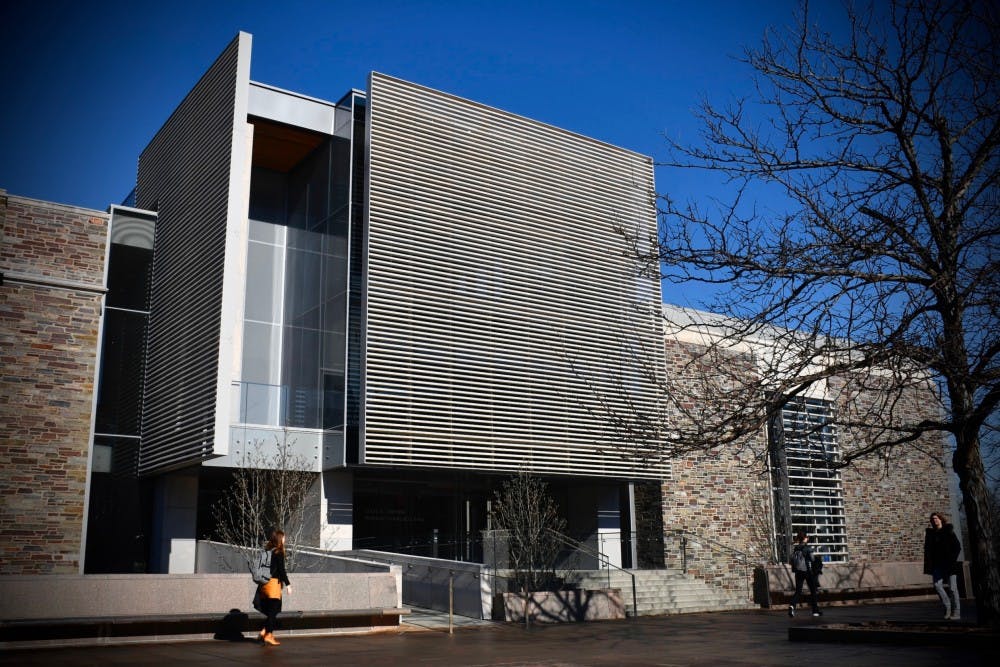The Office of International Programs’ October announcement that study and research abroad programs will remain suspended during the spring semester surprised few. In the midst of a global pandemic, restrictions on students’ international travel are a small price to pay in the fight against COVID-19. However, as vaccination efforts lag behind and it remains unclear when international travel will normalize, the pandemic’s troubling impacts on research and study abroad must be discussed. The loss of research and study abroad as a tool for generating cross-cultural understanding is especially worrisome in our distanced world.
Prior to the pandemic, Opinion Columnist Hannah Reynolds ’22 had extensive research plans in both the United States and abroad. The High Meadows Environmental Institute granted her funding to travel to Alaska in summer 2020, Latin America in winter break 2020, and Australia in summer 2021 to engage in research for a study she had designed. The study planned to cover the intersection of Indigenous language, culture, and land use, as well as environmental change. COVID-19 changed her plans; she narrowed the scope of her research to focus on Alaska and worked there virtually over the summer. Reynolds is satisfied with the new design of her project, but she also noted that the kind of cross-cultural comparison she had initially planned on undertaking would be impossible to do virtually.
Emma Moriarty ’22 also had sizable study and travel abroad aspirations prior to the pandemic. She was planning on studying in Argentina through Princeton in Argentina, participating in an excavation in Peru with a professor, and studying abroad this spring in South Africa through a SPIA program. Unlike Reynolds, Moriarty was unable to pursue any of these opportunities virtually — all three programs were simply canceled. Neither Moriarty nor Reynolds know if or when they will be able to pursue research or study abroad again.
Although disappointing for Reynolds, Moriarty, and countless other Princeton students, the cancellation of abroad programs also has broader implications rooted in the international community’s reaction to the pandemic. Namely, research and study abroad programs (rightfully) have been suspended at a time when the world stands to benefit from their capacity of strengthening soft ties between countries and cultures.
The COVID-19 pandemic presented an opportunity for global cooperation on an extraordinary scale. However, in many cases, it has deepened rifts between countries instead of fostering international unity. Wealthy nations have exercised their influence and financial resources to purchase a disproportionate quantity of vaccine doses, leaving their less-affluent counterparts with decreased access. Governments have used the virus as a justification to turn away asylum seekers. Racism and xenophobia against Asians have spiked worldwide.
In this broader context of what the Washington Post termed “a new era of global distancing,” international dialogue and cross-cultural understanding are more crucial than ever. The importance of international research both as a tool for generating cross-cultural understanding and as a catalyst leading to important discoveries cannot be understated. Although some summer or semester-long study abroad programs rightfully are criticized for being little more than glorified vacations, many study abroad programs do foster cross-cultural dialogue and can even promote peace. Unfortunately, as undergraduate students and seasoned academics alike struggle to research internationally, and study abroad programs remain canceled, these avenues for combating global distancing are restricted.
On a personal level, the pandemic’s impact on global educational opportunities has forced reflection. After graduating from high school in 2019, I was slated to spend the 2019-20 academic year studying Mandarin in Beijing, China through the National Security Language Initiative for Youth. Much like the Princeton students who were forced to leave campus at a moment’s notice last March, I had to evacuate from Beijing at the end of January 2020. As passionate as I am about Mandarin, sometimes it has been difficult to maintain the level of dedication and motivation necessary to learn the language amidst global distancing. I suspect many other students who are learning foreign languages or planning on pursuing research, study, or even careers abroad have faced a similar feeling. The best way to face this challenge, I have found, is to remember that as governments clash, individuals must carry the torch and continue to communicate and cooperate across linguistic and cultural boundaries.
Lastly, any article about the pandemic’s impact on international research and study abroad would be remiss not to mention Princeton’s international students. Even as the University’s campus reawakens, some Princetonians still reside outside of the United States. They will continue to face the challenges described by Won-Jae Chang and Rohit Narayanan in their telling articles about life as international students during the fall semester. Their stories exemplify the difficulties of maintaining the momentum of international education in our globally distanced world. Their accounts also highlight U.S. residents’ tendency to overlook the importance of international students, both to our university communities and to the world.

Ultimately, it is our responsibility as Princetonians to engage international issues and strive for cross-cultural understanding even as study and research abroad are suspended. We, as a community, can bridge the global distance.
Genrietta Churbanova is a first-year from Little Rock, Ark. She can be reached at geaac@princeton.edu.









